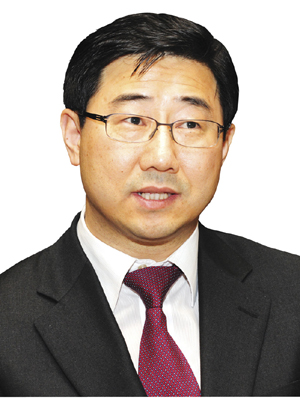Park Hyung-wook’s Blue House
During my lectures, students sometimes ask, “Which is better -- a doctor or a lawyer?”
I usually respond like this: It depends on individuals’ aptitude. There are some real differences, too. Concerning income, there are massive differences in the lawyer market. Some lawyers struggle to make a living while others make staggering sums. Doctors also have income gaps, but they are relatively equalized than law market.

Doctors have the advantage of a clearer work-life balance. Once doctors leave work for the day and turn over their patients to the physician on duty, they can forget about their patients for the time being because they can’t treat their patients from home. But lawyers may rack their brains thinking about litigation strategies even at home. Lawyers could find the work-life distinction – or the on-off of work – blurrier than doctors do.
On the other hand, doctors don’t suspect their patients of lying save for exceptional circumstances. But legal professionals, especially judges, always suspect litigants of lying, because too many of them do. Always doubting people may not be the most attractive way to lead a life.
Comprehensively, being a doctor is a good job to live as an ordinary citizen pursuing general wellness. It’s also a good vocation for volunteer services. Meanwhile, being a lawyer has a greater chance of interacting with political powers.
Doctors and legal professionals also think in different ways. Doctors have high tendencies to believe there is only one answer to a particular issue. I believe that is because medicine is a field based on natural science. Therefore, it is often difficult for doctors to arbitrate their difference of opinions. If I have the right answer and they have the wrong one, how could we ever reach a compromise?
Meanwhile, judicial officers know well that legal judgment involves both majority and minority views, and that today’s minority opinion might turn into a majority opinion tomorrow. During the first Constitutional Court ruling on adultery in 1990, the Court issued a 6 to 3 opinion that adultery was a crime. In 1993, 2001 and 2008, the court held up this decision. Finally in 2015, however, the court made a 2-to-7 ruling of unconstitutionality, reversing the law and decriminalizing adultery.
It is of course not always easy for legal professionals to mediate difference of views but their admission of the majority and minority opinions could serve as the foundation for relatively easier coordination of differences.
However, the biggest difference between the way of thinking of doctors and lawyers has to do with the separation of facts and subjectivity. Doctors distinguish between fact and objectivity. After hearing a patient’s symptoms and suspecting a stomach cancer, for instance, a physician will conduct a biopsy to confirm whether or not he or she has gastric cancer. No doctor will override the results of the negative biopsy and insist that the patient has cancer.
In theory, legal professionals follow a similar process to reach conclusions. If they want to arrive at a legal conclusion, it is imperative that they accurately nail down the facts, such as with genetic tests when proving a familial relationship. Only then can they apply their jurisprudence to come to a conclusion.
In reality, though, there are crucial differences. Public opinion does not affect a doctor’s diagnoses, nor could it have the power to trump the findings of a biopsy. In contrast, legal workers are strongly swayed by the influence of public opinion. If there is an unusually strong consensus about a particular case, a legal professional may adjust their jurisprudence or flexibly apply the law. Their job is to work with the law in a way that works.
As a result, even if a doctor’s claims of unconstitutionality about a particular law seem legally appropriate, constitutional judges will not rule it unconstitutional if the majority of public opinion oppose the doctor’s logic, and even go so far as to create a new law to make it constitutional. It’s because this is justice for legal professionals.
In principle, the essential mark of professional jobs is the ability to make professional judgments based on independent expertise. For the majority of legal experts, however, public opinion may very well be justice. They don’t want to get stoned by running counter to public opinion. It is one thing we should remember in that those legal professionals’ way of thinking can exert considerable influence on medical reality through their ruling or policy-making.
Park Hyung-wook is a doctor and lawyer who worked at the Blue House Health and Welfare Office. He currently serves as a professor at Dangook University Medical School. – Ed.

